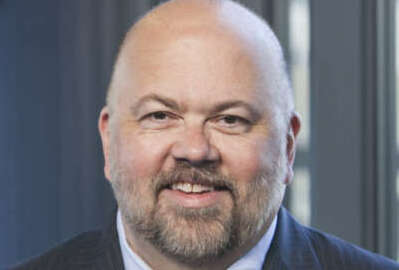
It’s time to start rebuilding the civil service
There is much to be done to restore trust in our government and the people who make it work. Commentator Jeff Neal says we can start by filling the gaping holes...
The past four years brought unprecedented changes to the civil service: Executive orders aimed at undermining collective bargaining, hollowing out the workforce of some agencies, rejecting fact-based approaches in favor of politically motivated decisions, and generally sending the message that federal workers were not needed, not appreciated, and not useful.
I understand that some people have made careers out of attacking civil servants. They argue that federal workers are lazy, incompetent, or worse. They criticize them for not adequately supporting the president, except when the president isn’t in their party, then they criticize them for supporting the president too much.
Of course there are federal employees who are not particularly competent, just as in every large company in the world. However, the vast majority of federal workers are competent, and a great many are exceptionally so. They do vital work that is absolutely essential to carrying out missions that support our military, deliver Social Security benefits, protect our environment, secure our borders, support and conduct medical and scientific research, provide statistical data that is necessary for fact-based decision making, provide benefits to veterans, and much more.
We have 2 million federal workers. Some would argue that is too many. Others will argue it is not enough. Regardless of their views concerning the size of government, progressives, moderates and conservatives who truly support our Constitutional form of government agree that the jobs should be filled with capable people who are hired and retained based on merit.
There is much to be done to restore trust in our government and the people who make it work. We can start by filling the gaping holes in some agencies, so our agencies are staffed to do their work. The Office of Personnel Management and President-elect Joe Biden have the ability to extend Direct Hire authority to agencies to meet critical needs. The significant vacancies left in many agencies constitute a critical and urgent need that cannot be met by business as usual, so granting expedited hiring authorities to them is warranted.
At the same time agencies are trying to staff up, the incoming administration will be dealing with an out of control pandemic, economic distress, and more. Challenges on that scale require different approaches, and those approaches require a civil service that is adequately resourced and adaptable to changing needs. That means stopping using civil servants as political footballs. If a politician wants to reduce the size of government, s/he should attempt to do so through legislative processes such as appropriations, rather than trying to make civil servants miserable and hope they go away. If a politician wants the government to do more, s/he should make certain agencies have the resources they need. That means competitive pay for federal workers, training to maintain and improve their skills, and dealing effectively with the small percentage of employees who are poor performers.
Rebuilding the civil service requires new approaches to hiring, competitive pay and benefits, and a civil service system that is more responsive to changes in the labor market. We know that federal hiring processes are so out of date and so inflexible that many agencies struggle to recruit and retain talent. We also know that there is more flexibility in the law than what agencies are allowed to do. To deliver a more agile approach, the Office of Personnel Management must adapt and rebuild its own capabilities. That will necessitate a cultural change in the agency, with policymaking based on flexibility, use of every authority the agency has, and a focus on helping agencies hire, develop and retain the talent they need to carry out their missions, all while ensuring flexibility and merit go hand in hand.
Much of civil service policymaking has been based on the idea that the government should use the same rules everywhere. There are valid reasons for that approach. it makes movement across government easier, reduces the problem of “have” and “have not” agencies, and is easier for OPM to oversee. There are also compelling arguments that such an approach has outlived its usefulness. Hiring and training challenges for law enforcement officers are not the same as for scientists. Hiring in the Defense Department is not the same as in the departments of Justice, Treasury and others. Where it is needed, agencies should be able to craft hiring and training programs that meet their specific needs, all while maintaining consistent benefits (such as retirement and health insurance) and making hiring and retention decisions based on merit system principles.
There is much to do in now and in the coming years. Success requires far more than a change of administrations — it also requires the 2 million federal workers who will turn policy ideas into real world solutions. Ensuring that we hire and retain the best talent available is the foundation for success.
Jeff Neal authors the blog ChiefHRO.com and was previously the chief human capital officer at the Department of Homeland Security and the chief human resources officer at the Defense Logistics Agency.
Copyright © 2024 Federal News Network. All rights reserved. This website is not intended for users located within the European Economic Area.
Related Stories




